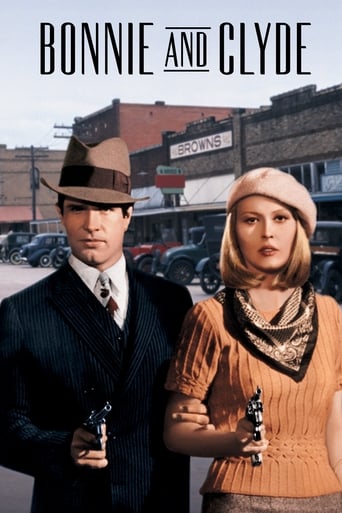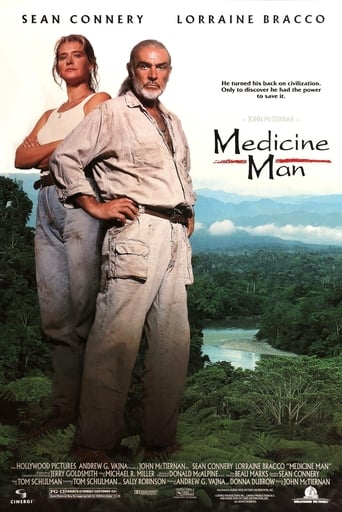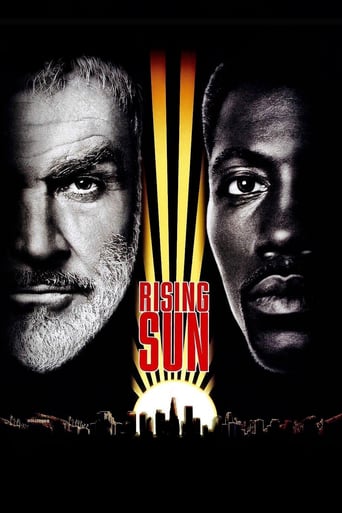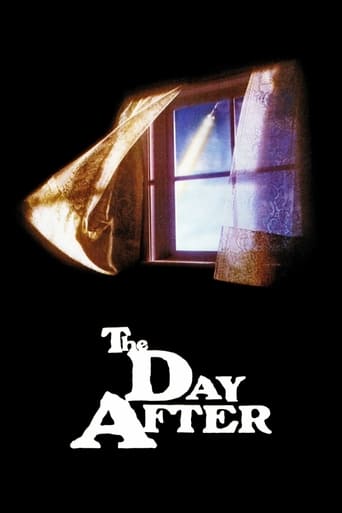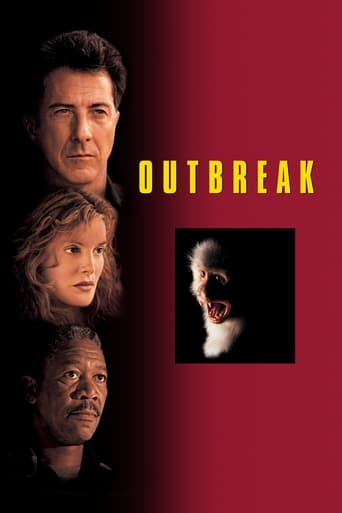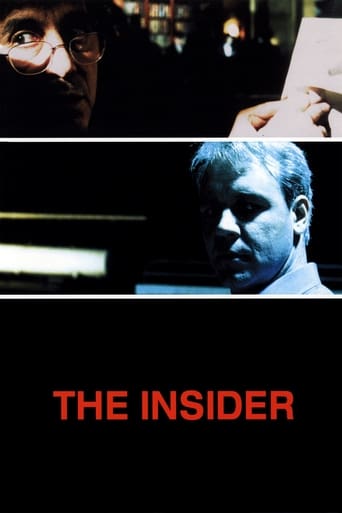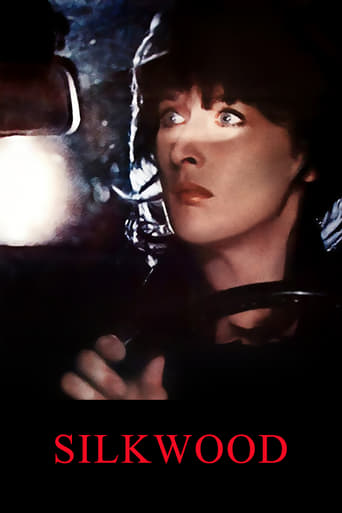
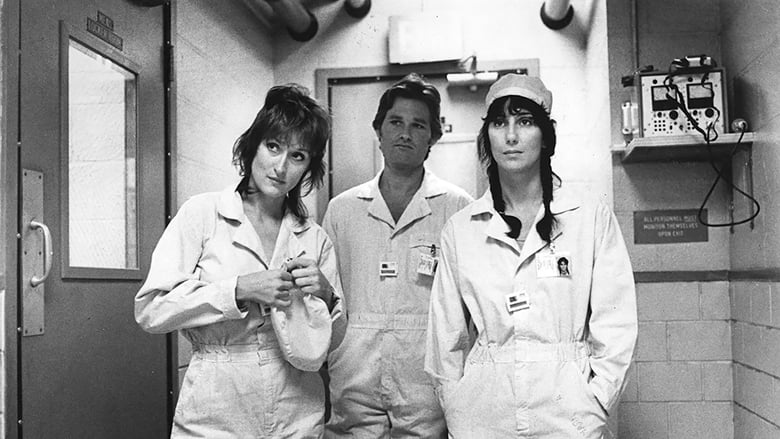
Silkwood (1983)
The story of Karen Silkwood, a metallurgy worker at a plutonium processing plant who was purposefully contaminated, psychologically tortured and possibly murdered to prevent her from exposing blatant worker safety violations at the plant.
Watch Trailer
Cast


Similar titles
Reviews
Powerful
Boring
Like the great film, it's made with a great deal of visible affection both in front of and behind the camera.
This is one of the best movies I’ve seen in a very long time. You have to go and see this on the big screen.
SILKWOOD is a true-life drama about the life and mysterious death of Karen Silkwood, a worker at a nuclear power plant in America who found herself exposed to radioactive material after campaigning against her employer's safety flaws. Coincidence? Possibly, but her subsequent death in a car accident made it look otherwise. I was hoping for a suspenseful thriller here, but SILKWOOD plays out as a slow-moving character drama for the most part. It's not exciting like other stories such as THE CHINA SYNDROME. Two thirds of the running time is made up of characters swapping dirty jokes, having sex, and random scenes involving Silkwood's housemate, who only seems to exist in the movie so that Cher could be a casting coup. On the other hand, this does have a very good cast, with Meryl Streep giving one of her most human portrayals as the lead. The excellent supporting talent includes Kurt Russell alongside THE THING's Charles Hallahan and POLTERGEIST'S Craig T. Nelson; there are also early turns for David Strathairn, Fred Ward, Bruce McGill, Ron Silver and many others.
I might as well start off by stating that I litter and don't recycle and use pesticides and do everything I can to cause pollution, I like pollution. But I've always loved this movie, not from an environmental aspect but because it shows the life of average, working class people and instead of trying to make it glamorous, it keeps it true. I love the acting, and I'm not a big fan of the bluegrass but the solo of Meryl Streep singing Amazing Grace was stunning at the end as it showed Karen's death scene.Karen Silkwood is a metallurgy worker, refining plutonium in a large chemical factory in Oklahoma with her friends (many of her friends are employed by the factory). The only one she doesn't get along with is Winston, the known creep who is always trying to get it on with the female workers. She shares a small house with her boyfriend Drew and a lesbian woman named Dolly, both of whom are her best friends; they even go with her when she drives out to the oil fields of Texas to see her estranged kids.One day Karen begins to pull together her memories of disturbing sightings at the plant, such as a radioactive truck being cut up with welding tools to be buried, and her friend Velma being hosed and scrubbed down naked after being contaminated. Karen soon finds herself involved in some serious activism and dangerous work, and just as she is about to blow the whistle she is killed. No one knows if it was an accident or a murder.Silkwood was based on a true story, a cold case that happened in 1983, forcing the shut-down of the sketchy factory. The movie accurately depicts the events and inspired several scenes in the Sysco book series as well as an episode of Cold Case titled Breaking News.
Karen Silkwood, casually chewing gum, finishes her working day by a routine cleaning task. She then leaves the room, raises her hand toward the radiation detector, as she always does, but this time, the strident alarm suddenly starts ringing, indicating that she may have been exposed to radiations. Karen tries not to panic although she's visibly shocked. And the scene cuts to the first of her three "cooking" treatments, which in nuclear jargon, means getting into a hot, long and painful decontaminating shower. That very moment is Karen Silkwood's story in microcosm, perfectly reflecting who she was and what she went through. Basically, Karen can't see the danger pending above her frail shoulders. She's not a fool but in a tragically admirable way, she is just blinded by her own integrity. Later in the film, she just enters the door, and the sound startles us again, we have a quick glimpse on the "Danger Radiation" signal, then it cuts to her cries of fear and disbelief under the hot shower, again. The sad irony is that Karen tried to apply some cleansing on the field of ethics, in the Nuclear factory she worked in, but the more she tried, the more tortured she was by the 'invisible enemy'. And the frequency of the shower scenes plays like the omen of a series of misfortunes leading up to a tragic conclusion, the ultimate 'cleaning'. Indeed, we all know that Karen Silkwood died in a mysterious car accident, so the shower scenes, each time more intense and haunting, marks the beginning of the end for Karen Silkwood. But as aware as we are about the facts, there's something in Karen's portrayal by Meryl Streep and in Mike Nichols' sober directing that don't get us prepared to it. Karen is no more idealistic than any other, she lives her life, she jokes and smokes, a lot as a matter of fact, she enjoys flirting, teasing her friends, she's like any small-town girl of her generation. "Silkwood" borrows many elements from 70's dramas like "Serpico", "Norma Rae" or "The China Syndrome", movies featuring ordinary persons, so dedicated to their job they couldn't close their eyes on some unethical practices and made outcasts of themselves by blowing the whistle.Karen belongs to America's struggling, unorganized working class. Her three children live with her ex-husband, and she shares a ramshackle house with her boyfriend Drew and lesbian friend Dolly, superbly played by Kurt Russell and Cher. As to emphasize the fact that the factory nourishes the town, they also happen to be co-workers. Indeed, whether a cotton mill or corporate police, the factory producing plutonium fuel rods for nuclear reactors, is only the setting and the film deals with a sincere austerity a slice of American workers' ordinary lives in a crisis-stricken America, with a more dramatic turn since it's a life-and-death situation, governed by pure profits' motives. When the plant falls into an important contract and workers are forced to work over hours and falsify some records, the effect on their health is perceived as minor collateral damage, a chance even workers are ready to take, because at least, their wages is a valuable certitude. "Silkwood" chronicles Karen's double evolution: her ascension from a worker to a union activist, traveling to Washington, interacting with union officials, testifying before the Energy Atomic Commission and revealing that some records are altered. And in the same time, there's a descent into the outcast status, making her more and more undesirable, but in the meantime, more and more determined to conduct the investigation on her own. Karen died the night she was supposed to give documentation to New York Times reporter but none of it was found in her crushed car, except convenient hints indicating that she was drugged and 'fall in sleep" while driving. From all the previous heroes I mentioned, Silkwood is the most tragic character because she paid the highest price. And what makes the story so heart-breaking is that it's not until it's too late, that she realizes she's been sailing on trouble waters. I'm still haunted by the last shot of Karen blinded by headlights on her rear view mirror. Is she worried, surprised? or does she literally see the light, realizing where her fight has lead up and is probably aware of what's awaiting her? We're only left with our sorrow, sadness and disbelief shared by her co-workers and friends when the crushed car is dragged to town. And it's the bold and abrupt realism that emotionally enhances the film, it's set in 1974, but the feeling is so authentic I felt like it was made in 1974.Nichols' doesn't stylize the film, shot like a documentary. The big corporations aren't vilified as Karen isn't romanticized either. The only time the 'David vs. Goliath' aspect of her fight is hinted is when she looks for retouched negatives of faulty fuel rods and is confronted by Craig T. Nelson. She tells him she's looking for her pills, but the intimidating towering presence of Nelson accentuates Karen's vulnerability and provides the first hints of danger.Realistic dramas like "Silkwood" can only rely on performances and Meryl Streep dilutes herself as Karen Silkwood. She wasn't thirty in "Kramer vs. Kramer" but she conveyed a classy maturity, she's older in "Silkwood" but she looks like a 28-year old woman with that mixture of tenderness and carelessness, and so deeply rooted altruism. I didn't know Meryl Streep could look so adorable, so childish, being sometimes naughty, yet revealing a stronger side than anyone, something she didn't knew she had. That's the stuff heroes are made on and I was sad to see that Karen Silkwood was only listed as 47 on AFI's Top 50 Heroes, so far below Norma Rae (#17) and Erin Brokovich (#31), especially since the reason why I loved "Silkwood" is precisely why I didn't like "Erin Brokovich".
This is a review of "Silkwood" and "Norma Rae", two of the more famous "women's pictures" of the 1980s. The better of the two, "Norma Rae" stars Sally Field as Norma Rae, a textile worker in small town North Carolina. Director Martin Ritt delves into Norma's social and home life, highlights the exploitation of both Norma and her fellow workers, and then introduces Norma to a Jewish unionist played by Ron Leibman. Ron teaches Norma the importance of solidarity, worker rights and battling for betterment. Sally, meanwhile, reveals herself to be a headstrong, blue-collar warrior; the brawn behind Leibman's brains.While "Norma Rae" does trivialise (it champions a "fairer capitalism", rather than examine the contradictions of capitalism itself), it does contain a number of good passages, most of which either compare Ron and Norma's differing social backgrounds or show the textile bosses strategically promoting dissenters and so pitting workers against workers. John Alonzo's cinematography is pitch perfect, gritty, intimate and pseudo-documentarian.Some have complained that "Norma Rae" is uncritical of unions, that the film neglects to mention that Norma's textile plant promptly shut down, and then go so far as to suggest that "unions are bad" because they "end jobs" and "chase jobs offshore". We see similar arguments today, banks, and the financial sector as a whole, which proclaim themselves as being "indespensible", threatening to pack up and leave countries if taxes are raised or stricter measures are put in place. Such things are typically used as "proof" for the benefits of less regulation. In reality, it's tantamount to blackmail.Directed by Mike Nichols, "Silkwood", another blue-collar whistle-blower picture, stars Meryl Streep as Karen Silkwood, a lowly worker at an Oklahoma nuclear facility. Along with her best friends (played by Kurt Russell and Cher), Karen begins to gather proof of her company's copious wrongdoings, which include poor safety measures, employee exploitation and radiation spills. Like "Norma Rae", the company bosses attempt to fight back, but can't seem to counter Karen's grit and determination. Both film's are overly sentimental, deal in very broad stereotypes (bad bosses, good exploited workers, saintly activists etc), but mask their deficiencies well with their low-key tones, naturalistic acting and strong, small town atmosphere. Their ancestors are King Vidor's "Our Daily Bread" and Michael Wilson's "Salt of the Earth". Their children are everything from "Matewan" to "North Country" to "Erin Brokovich" to "The Insider" to Ken Loach's underrated "Bread and Roses". The tale's familiar, and is habitually resuscitated every now and then.Unlike most films in this genre, "Silkwood's" hero is actively stalked, hounded and murdered by the shadowy corporations she locks horns with. In real life, the nuclear facility at which Karen worked (Kerr-McGee) was rumoured to have strong ties to the US Government, the CIA and the NIA. As Karen was about to whistle-blow on the illegal sale of nuclear grade plutonium, some believe she was assassinated. In the 1970s, women like her spearheaded the anti-nuclear movement, which has been successful in stopping the construction of nuclear plants, which even today are constantly being offered as "clean", "carbon free", "reliable energy sources".8/10 - Overrated, simplistic, but well acted. Worth one viewing. See "Bread and Roses".





